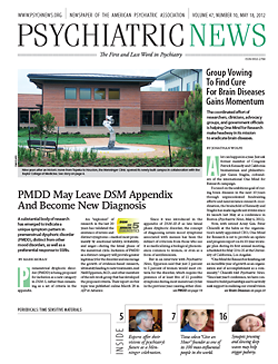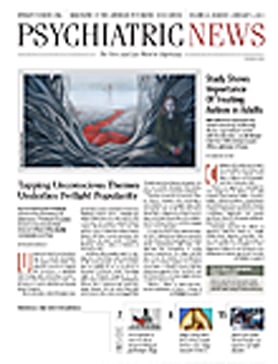Middle-school children are hazy about the causes and treatment of mental illnesses and have mixed attitudes toward people with mental illness.
“[T]here are clear gaps in adolescents’ knowledge about mental illness,” wrote Otto Wahl, Ph.D., a professor of psychology at the University of Hartford, and colleagues in Psychiatric Services in Advance April 15.
Those gaps in knowledge and ambivalent views about mental illness are especially crucial during a developmental period when symptoms of mental illness often first appear.
The research is based on a survey of 193 seventh- and eighth-graders in South Carolina, New York, Florida, and New Mexico.
In the survey, 65 percent of respondents expressed uncertainty about whether mental disorders are caused by biological factors, a surprise to the authors. Only 37 percent believed that medications are helpful in treating mental illness.
Fewer knew much about the symptoms of specific mental disorders. Only 25 percent knew that “overly energetic” behavior characterizes bipolar disorder, and 72 percent did not know whether schizophrenia is characterized by multiple personalities.
Furthermore, more than half of the respondents were uncertain if mentally ill people could recover if treated, and about one-third thought that treatment was ineffective.
The authors concentrated on misconceptions found with illnesses usually seen in adults, like bipolar disorder or schizophrenia, commented child psychiatrist Sheryl Kataoka, M.D., an assistant professor of psychiatry and biobehavioral sciences at the University of California, Los Angeles. “However, more common childhood disorders such as ADHD, depression, or autism were not included and may be more relevant for this middle-school population.”
Students Recognized Bias
Among the middle schoolers, there is also “a substantial undercurrent of negative views about mental illness despite the prevalence of many positive attitudes.”
About 72 percent of the students said that people with mental illness are treated unfairly, and 66 percent said they often see negative portrayals in the media.
Responses to questions about social distance seemed to vary inversely with the actual distance involved. About 78 percent of students said they would talk to a person with mental illness, 56 percent wouldn’t mind having one as a classmate, 41 percent would work together on a class project, and just 14 percent would go on a date with a person with mental illness.
The students in the survey had more favorable attitudes toward people with mental illness than adults generally do, said the authors.
Opinions on violence diverged notably. “A major component of adult views of mental illness is the inaccurate belief that those with psychiatric disorders tend to be violent and dangerous,” wrote Wahl and colleagues. “However, only about 1 in 10 middle-school youth agreed that people with a mental illness tend to be violent and dangerous, and a far greater percentage (53 percent) disagreed.”
Perhaps young people have fewer fears of mental illness than their elders, they suggested.
Education Needed to Change Attitudes
Lack of knowledge about mental illnesses may make it hard for young people to recognize symptoms in themselves or their peers, suggested the authors. Negative group attitudes may hinder willingness to seek care.
“Clearly, better education of youth about mental illness and its varied forms and inculcation of more positive and accepting attitudes are needed,” concluded the authors, without suggesting how that is likely to happen.
Various educational programs exist, but reducing that social distance may be one of the simplest and most effective, said Kataoka.
“There is some movement to improve how we educate students with special needs and to place them in the least-restrictive environments,” she said. “If typically developing children have the opportunity to socialize and interact with students with special needs in a positive way, guided and processed by the adults around them, they will be ‘better educated about mental illness.’ ”
Programs that integrate peer-to-peer components could also improve attitudes about mental health and illness and increase access to services for teens, she said.
The study was funded by the National Institute of Mental Health and the National Alliance on Mental Illness.


